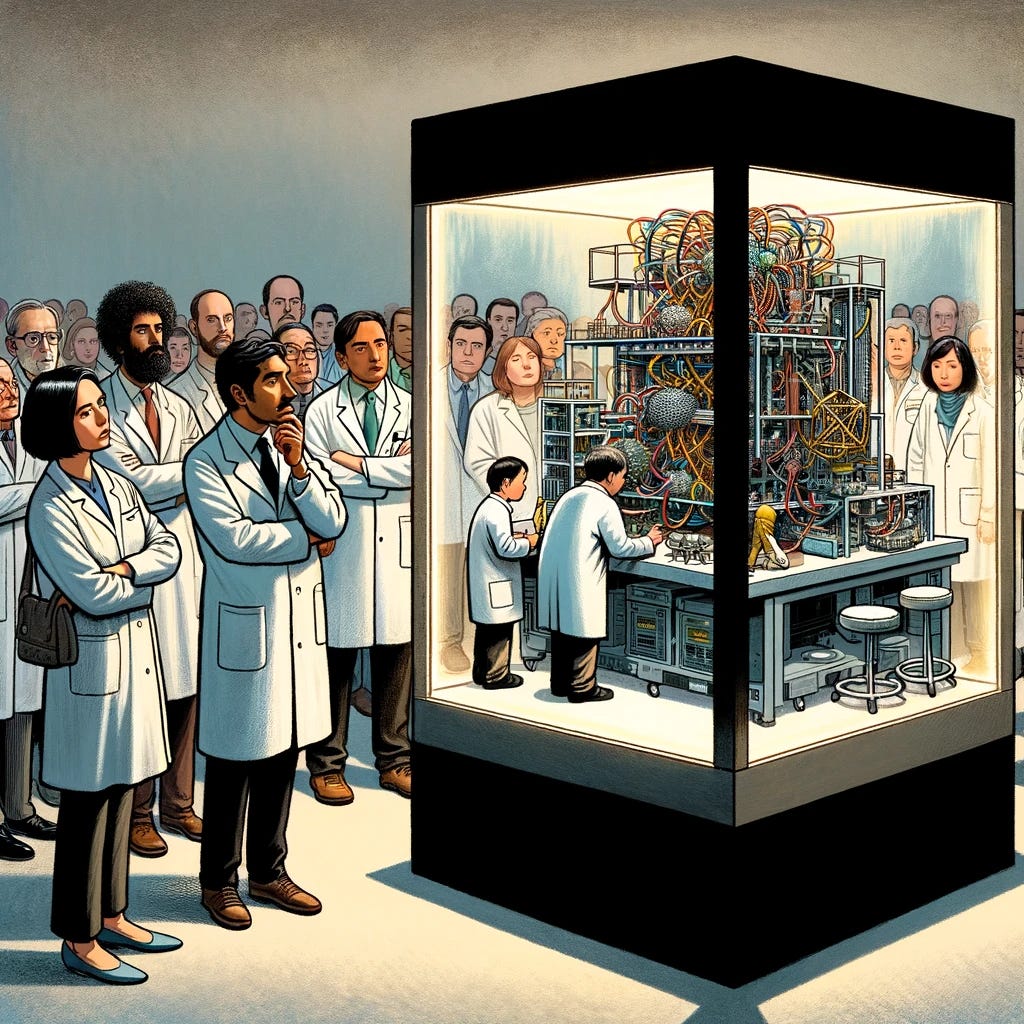Hey, welcome to episode 14 of Console.Warren. If you like what you hear, please consider subscribing or liking.
Today let’s talk about quantum computing.
A quantum computer would harness more power than we as humans can understand. If you watched 60 Minutes the other night, the most enlightening example was when they said an algorithm that would take all the supercomputers on Earth 15 million years to solve, could be solved by a quantum computer in minutes. And humans are about five to ten years away from quantum computing becoming a reality, which is a civilization-changing event.
If there are advanced forms of life in the universe, it’s not a stretch to think they are probably harnessing quantum computing as well. The theoretical physicist, Michio Kaku, says if aliens are real, and he says they most certainly are, they undoubtedly are using quantum computing to travel through black holes. He says this may explain why we can’t detect them with our current technology.
If these advanced civilizations existed, they undoubtedly would also have the ability to create advanced simulated realities.
Nick Bostrom, a Swedish philosopher at the University of Oxford, is known for his Simulation Hypothesis. Essentially he says that one of the following has to be true: one, advanced human-level civilizations go extinct before they can create advanced simulations. Two, advanced civilizations exist but they have no interest in creating simulations, or three, advanced civilizations exist and they create advanced simulations.
If the third is true, then the number of simulated realities would vastly outnumber actual realities, and chances are, we are one of the simulated realities.
It’s an interesting thought experiment, especially if you’ve seen the movie, The Matrix.
I had this idea years ago that the concept of an infinite universe might be more logically consistent within the framework of a simulation rather than in reality. If you’re representing an infinite universe in a computer simulation, you can continually expand the numerical representation of the volume of space with a number. Of course, while you would be limited by the amount of computational power, it’s possible that advanced quantum computers would make an infinite universe more feasible, especially if you don’t need to show the whole universe at once; sort of like a super advanced video game. To me, this makes more sense than the idea that we are living in an endless physical universe because how could something be never-ending in reality?
If Bostrom’s third option is true and if civilizations had the technical ability to create highly complex simulations and simulated realities, they would do it. We do it right now, albeit on a much smaller, crude scale. But if quantum computers happen, imagine the number of simulations or simulated realities we’ll create.
We could create complex situations to predict weather, wars, famine, and poverty. Foreign and monetary policy decisions could be run through simulation countries to predict their outcomes for the masses. We’d use them to predict market crashes, pandemics, and healthcare outcomes, and to study human behaviors and cure disease. Then we’d turn the dials a little bit and run them again. We’d run trillions of these.
So let’s pretend Bostrom is right and we are one of these simulations created by an advanced civilization.
Maybe we are in a simulation to study how disease spreads in societies. Maybe disease is relatively new to this advanced civilization or it has eradicated all disease from its society, but it still wants to understand and be able to predict any disease in the future.
But what happens if the participants (us) inside the simulation start to understand quantum computing? What happens if the participants start to understand and harness the very thing that is powering the simulation? If you’re running the simulation, maybe you let it run for a little bit; maybe they’d let us create simulations and then those simulations eventually create simulations and you’d have a Russian doll effect, but eventually, they would shut it down because that wasn’t the point of the experiment.
Or maybe we are in a simulation to see how long its participants take to discover technological supremacy, which would be quantum computing. Just like how we might run simulations to see how long it would take some rogue nation to acquire a nuclear weapon.
Once they reach the goal of the simulation, then what?
What happened in The Matrix when Morpheus and crew discovered the truth? To me, something is terrifying about scratching the surface of The Creator’s workbench. Understanding too much of the interworkings of nature feels like a bad idea.
While we might not be in a simulation, and for all the good quantum computing will do, like cure diseases, humans need to stop and think before we unleash the power of the universe onto this troubled planet.
One more thing to ponder.
We know number two in Bostrom’s hypothesis isn’t true. What if number one, that advanced civilizations go extinct before they reach the ability to create simulations, is true? If we are on the verge of gaining access to the most powerful computers in the universe, what are the chances we will be the one civilization in the history of the universe to break this terrible streak and not go extinct before reaching technological supremacy?
Does this mean we could be on the verge of extinction?













Share this post